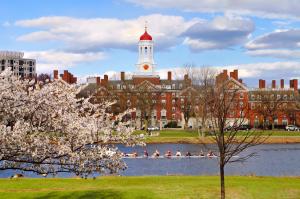In this series I am arguing that a certain form of Christian faith and practice, an “orthodox” form, is gradually collapsing in America. Moreover, it is likely that pastors, priests, bishops and orthodox laypersons who adhere to this form of Christian orthodoxy will experience concrete instances of state-sponsored aggression. The reasons for this persecution are critical losses on three battlefields of culture: the battlefield of the senses, the battlefield of the mind, and the battlefield of the heart or emotions. In the first post I reasoned that orthodox Christianity is quickly losing the battle of the senses. In this post I will show how it is losing, or has already lost, the battle of the mind or intellect.
Orthodox Christianity vs. Progressive Christianity
Before I try to show how orthodox Christians have lost the battle for the intellect in America, let me first return to the notion of “orthodoxy.” Orthodoxy, in the context of this series, should not be equated with Eastern Orthodoxy. Eastern Orthodoxy is an easily identifiable tradition of theology and practice which separated “officially” from Roman Catholicism and Western Christendom around 1054 AD. Instead, I am talking about orthodoxy as it relates to the kind of religious beliefs and practices that term might entail.
These orthodox beliefs and practices can be said to be held in common by all major Christian traditions in Christianity’s roughly 1,980-year history. In other words, this is the kind of “Mere Christianity” that Vincent of Lerins in the 5th century, Richard Baxter in the 17th, and C.S. Lewis in the 20th century would have agreed upon. I previously laid out five criteria by which one could identify an orthodox, or consensual, Christian church. I will not review those criteria here, but expound on the term “orthodoxy” in order to be more precise about the kind of Christianity I believe will soon fall on hard times.
In addition to the actual beliefs, however, orthodoxy also refers to the kind of believers who hold such orthodox views. These are “the orthodox,” people who arguably will be (or already have been) most affected by acts of persecution in America. These “orthodox” are united not by common race or ethnicity or sex (as some might want to assert), but by a common set of assumptions about reality, especially morality, and shared set of religious practices.
For those who think that these kinds of people will not be subject to persecution, or that it has not already occurred (in part), I would make reference to the following cases: the Jack Phillips case, the Little Sisters of the Poor case, the case of the 2016 Bill 1146 in the State of California. Other examples could be easily multiplied. It is true that each of these cases has, until now, had positive outcomes, but those outcomes have not ended the controversy or the litigation. Further, the more controversial and invasive governmental acts are still looming, like the forthcoming Equality Act.
Another way to bring orthodoxy more clearly into sight is to look at its main alternative. The primary alternative to this orthodox form of Christianity, be it right or wrong, is what we might call “Progressive” Christianity. It is Progressive Christianity that I expect will be less affected by governmental suppression or cultural pressure. As such, progressive Christians will be less likely than orthodox Christians to experience significant blow back from secular authorities or cultural institutions.
5 Marks of Progressive Christianity
Let’s lay out some possible features of this Progressive Christianity. It is better to speak of “features” here rather than criteria, since any kind of Progressivism cannot be defined apart from its deviation from Orthodoxy, which is fundamentally about preserving and conserving. Progressive Christianity is, therefore, only clear insofar as we recognize some essentials of Orthodoxy. There is not a fixed set of criteria by which one could identify as progressively Christian, especially considering that the term “progressive” implies an embrace of change or flux. To reference Hegel’s maxim, Progressivism embraces the “whatever is, is right” mentality.
These features are, therefore, by no means exhaustive, and there will be exceptions since there may be some churches that label themselves “progressive,” yet do not display all these features. Nevertheless, here are five features by which we might better understand the distinction between orthodox and progressive versions of Christianity:
-
Correlation Theology
Progressive Christianity will likely hold to some form of correlation theology. Correlation theology and the methods that define it are known both in the Protestant and Roman Catholic traditions. A prime example of a Protestant theologian who advanced the theory of correlation would be Paul Tillich, while a Roman Catholic example would be Yale theologian Margaret Farley.
Briefly, correlation theologies argue that Christians and Christianity are in an open dialogue with the words of the Bible. While the words, images, commands, narratives and symbols of the Bible and the Bible’s propositional content might be considered “inspired” and edifying to a given Christian community, those same words, commands, thoughts, symbols and propositions do not necessarily refer to some fixed, universal, and binding moral or theological content. For a comprehensive take on the idea of fixed, universal, and binding theological propositions, see Eduardo Echeverria, Revelation, History, and Truth: A Hermeneutics of Dogma.
At a minimum, the moral and metaphysical content and theological truths presented in Scripture must be reformulated to answer the questions of our modern (or post-modern) times. As such, Christian answers are ultimately subject to what drives us existentially today. Moreover, what drives us most profoundly today will ultimately determine what we need to retrieve from the Scriptures, or Church History, and what we might conveniently leave behind. What we leave behind is what we have “progressed beyond.” This dialogical approach (a term, I believe, coined by Margaret Farley) to the sources of Christianity may take broad, biblical themes such as “love,” “justice,” or “liberation” into account, yet reject the specific moral commands enshrined in the text of Scripture that fill out those themes.
As such, for progressives, biblical themes which are still important to us today can nevertheless be detached from specific moral laws found in the Bible or pronounced through the church’s historical teachings. One Roman Catholic theologian puts it this way: correlation theologians and their followers don’t like what might be called “Churchianity,” whereby “Churchianity” stands in for fixed, universal, and binding pronouncements of the Church that apply today just as always. The result of a correlation theological approach is often, but certainly not always, an elevating of philosophy and contemporary experience as the norms by which we gauge the validity of biblical statements. In sum, the church today confers authority on those parts of Scripture which correlate best to our current existential experiences and normative judgments about the world. - Moral Norms
In light of feature 1, progressive Christian churches will tend to evaluate moral claims differently than orthodox churches. Non-negotiable moral judgments that orthodox Christians make, especially in the areas of life issues (e.g. abortion and euthanasia), human sexuality and the nature of marriage, will likely find revision among progressive churches. For these churches, contemporary lived experience and the judgments of certain sciences will demand theological claims be revised to answer the questions which emerge from those experiences and those judgments. Theologian Margaret Farley puts it this way regarding sexual ethics,
New philosophical links between sex and freedom, sex and power, sex and history, gender and just about everything else, are in some respects so important that there can be no turning back to simpler ways of interpreting human experience.
Farley, Just Love: A Framework for Christian Sexual Ethics
In other words, going back to how pre-modern, biblical authors like Paul “experienced” sexuality when he wrote Chapter 6 of his first letter to Corinthians is no longer possible in light of new “philosophical links.” Philosophy and the sciences have trumped the theological judgments of Paul and maybe even Jesus, each of whom had different cultural experiences of sexuality and no sense of modern science.
3. Exclusivity of Christ
Progressive forms of Christianity will, unlike orthodox forms, tend to reject the exclusivity of Christ with regard to salvation, instead opting for a religious universalism that allows many (perhaps all) to be saved through means other than Christ’s atoning sacrifice.
4. No Closed Canon (Continued Revelation)
Progressive forms of Christianity will often see ongoing human experience and the process, or progress, of history as equally revelatory of God’s nature and will as the Biblical revelation itself. In other words, the canon of revelation is not closed.
5. The Nature of Biblical Language
Finally, progressive forms of Christianity may also be more likely to deny or underplay the metaphysical realities that ground the truth claims of many creedal statements of the historical Church, as well as the supernatural aspects of the biblical witness. In other words, references to demons, angles, spiritual powers or perhaps even a personal God, are often seen as merely symbolic or metaphorical. Statements of belief by divinity schools like Wake Forest demonstrate that the biblical language about God is itself only symbolic. If the biblical language is only symbolic, and if all symbols are socially and historically constructed, then the Bible’s statements are restricted to its historical conditions and the authors living in them.
In sum, churches or Christian communities that exemplify these features can reasonably be called “progressive.” Moreover, these features of progressive Christianity help us better see what orthodoxy is. Finally, it is more likely that the churches and communities which exemplify this form of Christianity will not experience the kind or degree of persecution that their orthodox brothers and sisters will have to endure. Their theological approach essentially safeguards them from butting up against the culture (at least, for now).
Just a side note at this point: I am not trying to set Christians against each other. I just think it is an obvious truth that churches which are more open or more in sync with the conclusions of the culture in which they live will have a far easier time surviving in that culture. Again, I am making no arguments here as to whether progressive forms of Christianity or orthodox ones are true or false.
With this now in mind, I turn to the claim that it is on the battlefield of the mind that orthodox Christianity has lost much ground. Perhaps too much to recover the land.
Second Sign: Orthodox Christianity and The Battle of the Mind
1. The Great Disparity (or Lack of Diversity) in the American Academy
The nomination of Amy Coney Barrett was truly a shocking turn of events in recent Supreme Court history. Considering what it took to get such a devoted and brilliant conservative Catholic a seat on the highest court in the land, however, shows the degree of cultural resistance to thoughtful, orthodox Christianity. The fear of dogmas living loudly in the hearts of men or women with equally powerful minds is palpable among many in positions of social and political power. But, perhaps more shocking than Barrett’s nomination and appointment, is the fact that there even is someone like an Amy Coney Barrett– a serious Christian executing serious social functions in the present culture.
When one considers, for example, the rates of conservative Catholic and Evangelical voices in high academia today, in comparison to liberal, agnostic and leftist ones, it is amazing that women like Barrett even exist. It is perhaps a credit to her alma mater (and mine), the University of Notre Dame, that at least some semblance of orthodox Christian faith remains palatable among the academic elite. References to the evidence for these astounding disparities between conservative scholars and liberal ones can be found here, here and here.

2. Religious Belief, Political Opinion and the Shape of the University
That said, my argument rests on an assumption. The assumption is that Christians who tend to vote Republican or who identify as politically conservative will be more in line with the criteria of orthodoxy I set out in the previous post than those features of progressive Christianity I laid out above. The corollary to that is Christians who are politically liberal and vote Democratic will tend to find themselves in churches or denominations that display the features of Progressivism laid out above.
While I think there is good prima facie reason to think that these correlations hold, I also recognize that there will be exceptions. For example, there will be some orthodox Christians who, on occasion, find it more appropriate to vote for political liberals, and some progressive Christians who, on occasion, vote for or support Republican candidates. There are always outliers to any generalization.
Nevertheless, data suggests that political views matter to how one views Christianity in America. One might infer from this data that if orthodox Evangelicals and Roman Catholics are mostly viewed by Democrats negatively and by Republicans positively, and if the social agendas of the Democratic party line up better with progressive forms of Christianity, while the agendas of Republicans with Orthodox forms, then we might conclude that when we see a tremendous disparity in the academic world between political liberals (Democrats) and political conservatives (Republicans), that the influence of orthodox Christianity in the high academy is marginal at best.
Corey Miller, The President of the campus ministry Ratio Christi, highlights this fact:
According to Harvard’s recent Crimson Survey, the single largest religious group of the class of 2019 is atheist/agnostic. Erstwhile Harvard student Bill Gates dubs Enlightenment Now, by Harvard atheist professor Steven Pinker, his “new favorite book of all time.” Pinker, like a great number of his colleagues, is a self-proclaimed atheist and liberal. From top to bottom, Harvard isn’t what it once was. He points out that in 1990, 42 percent of faculty were far left or liberal, 40 percent moderate, and 18 percent conservative, for a liberal-to-conservative ratio of 2.3 to 1. Today, for those ages 65 and older preparing for retirement it is 12:1; and for younger scholars ages 36 and under it is 23:1.7 In Religion departments it is a whopping 70:1! There is extreme bias against hiring evangelical Christians. It seems there is an all-out assault on the Christian faith where the major battlefield is the universities. Some professors explicitly target Christian faith: “Employing universities in the struggle against faith is a cornerstone in the larger strategy to combat faith, promote reason and rationality, and create skeptics.”
Corey Miller, “How We Lost the Universities and How to Reclaim the Voice of Christ”
Further, one Barna survey shows that when Democrats think of Evangelicals they think of very different traits then when Republican think of the same subgroup:
The terms chosen most frequently by Democrats were: politically conservative and religiously conservative, narrow minded, homophobic and uptight. The ones that Republicans selected were: religiously conservative (but not politically conservative), caring, hopeful and friendly. It would almost appear that these partisan affiliations are talking about two completely different religious groups. Democrats seem to be pointing out some of the worst qualities they perceive about evangelicals, while Republicans are quick to emphasize positive characteristics.
Ryan Burge, “The Evangelical Identity Crisis”
At the end of the day, many Christians do vote based on individual persons and specific policies. Thus, any claim here does fall prey to the fallacy of hasty generalization. Still, considering the immense discrepancies in numbers at major universities, it is quite reasonable to think that of those very many liberal or left-leaning professors some may be progressive Christians. And, of the very few conservative or Republican ones, some may be orthodox Christians. However, mostly there are predominantly atheistic Democratic professors in higher education, most of whom would strongly dislike orthodox Christianity, yet maintain some sympathy for Progressive Christianity. Either way, and in conclusion, the empirical evidence overwhelmingly suggests that orthodox Christians have lost the battle of the mind in virtue of losing a place in the university.
Intellectual Suicide: The Closing of the Evangelical Mind
Still, the loss of the battle of the mind has not come solely through the discrimination of Christians by scholarly adversaries, even though that discrimination is real and has been clearly documented here and here. Nevertheless, students of Evangelicalism in America will be familiar with the tragic turn away from the academy in the early 20th century by fundamentalists looking to carve out a subsection of culture for themselves, a section separate from what they saw as an academic will corrupted by the noetic effects of sin.
This theological impulse was not entirely erroneous, however, the withdrawal from academics was. Instead of contending with the skeptic on the battlefield of ideas, many Evangelicals decided to retreat into their own intellectual realm, a realm safeguarded by common assumptions and orthodox presuppositions. This move left a lacuna of rigorous academic scholarship to offset the domination of the universities by atheistic naturalists and later post-modernists.
Others groups, like some mainline Protestants and Roman Catholics, did stay in the academic arena. However, rather than contest the rise of scientistic naturalism, or its counterpart, post-modern existentialism, they capitulated much intellectual territory. The greatest capitulations to their more socially acceptable interlocutors came in the areas of metaphysics and moral theory. With the exception of some neo-Thomist moves in Catholic Theology and the advent of analytic philosophy of religion grounded in the work of thinkers like Alvin Plantinga, Richard Swinburne and William Lane Craig, the academy was left to be fought over between the intellectual offspring of Bertrand Russell and Karl Marx (e.g. men like Richard Dawkins and Michel Foucault).
Conservative Roman Catholics and Evangelicals may have had the better arguments, perhaps not unlike Intelligent Design theorists today, but their social clout was not sufficient to stand up to the all too human pressures of their scholarly peers. In the end the will is more powerful than the mind, and winning the sociological battle is just as important as developing the better arguments.
Conclusion: The Battle for the Mind is (Nearly) Lost
The result of this loss on the battlefield of ideas between the 1910’s and 1990’s has been a culture that takes naturalism as a given. The classical liberal side of this materialist coin may share some common features with orthodox Christianity, for example in its embrace of instrumental reason as a means to objective knowledge, while the Marxist side of the same coin other ones, like its emphasis on the material care for all people. However, neither is truly a friend or ally of a historical Christian worldview– a worldview which assumes a reality beyond nature and of transcendent purposes and eternal rewards.
In the end each of these alternative worldviews and the manifold social causes and political movements they birth will inevitably be in competition with Christian orthodoxy in some foundational area. And, as with orthodox Islam, these two cannot peacefully coexist if one becomes too dominant in the culture. Christian orthodoxy will always attempt to curb, correct or resist certain flaws inherent in those secular systems and the (im)moral demands that flow from them.
A true Christian orthodoxy will play the prophetic voice to systems not grounded in the reality of God and in the natural law embedded in His creation. This seems to be what Cardinal Francis George was gesturing toward in 2010 when he uttered his now famous phrase. Concrete moral issues like abortion, euthanasia, and transgender rights are all examples of cultural phenomena which orthodoxy can never accept and is called to repudiate in order that it retain its sine qua non.
Philosophers like Charles Taylor have made it clear that we no longer live in a cultural context where religious belief, at least not metaphysically significant religious beliefs, appears plausible to the average person. Taylor puts it this way:
The great invention of the West was that of an immanent order in Nature, whose working could be systematically understood and explained on its own terms, leaving open the question whether this whole order had a deeper significance, and whether, if it did, we should infer a transcendent Creator beyond it. This notion of the ‘immanent’ involved denying–or at least isolating and problematizing–any form of interpenetration between the things of Nature, on the one hand, and the ‘supernatural’ on the other, be this understood in terms of the one transcendent God, or of Gods or spirits, or magic forces, or whatever.
Charles Taylor, A Secular Age, 15-16.
And once the metaphysical realities that underlie the moral claims and spiritual practices are undermined, the atheistic materialist of either camp can sit back and slowly watch actual churches began to cave to social pressure. That pressure creates even more skepticism about orthodox moral claims. And, if social pressure is stronger than even the strongest argument, the willingness of those who would otherwise hold to historical Christian dogma is additionally weakened.
While Taylor’s analysis goes far beyond a simple “naturalism” versus “Christianity” narrative, it nevertheless is the case that at one time all of the major educational institutions in America were Protestant universities. These institutions were once dedicated to the pursuit of divine Truth and the clear explication of that Truth for the sake of building a more moral and just society. That this is no longer the case has been absolutely undeniable for over 100 years now. In this sense, it really is no wonder that the beliefs of women like Amy Coney Barrett seem incredible to other women like Senator Dianne Feinstein.
Still, the gradual loss of the research university and centers of academic engagement in the 20th century have made orthodox Christianity only a near lost cause in 21st century America. For even losing the intellectual battlefield and the battlefield of the senses is not a sufficient condition for the decline of orthodoxy in a nation. For that a final condition must be met, and that condition is the loss of the heart of a nation. In my next post I will argue that in losing the heart of America, orthodoxy must prepare for its inevitable demise.













